Threats to our water demand immediate action and Charleston Waterkeeper's Executive Director and Waterkeeper, Andrew Wunderley, is creating that action. If you haven't had the chance to meet Andrew, he is one of those people that seems to have a few more hours in the day than most of us. Scientist, biologist, conservationist, politician, writer, speaker, entrepreneur, surfer, explorer, marketer — and yes, we’re still talking about just one guy.
Leading by example, Andrew and the Charleston Waterkeeper organization equips and organizes the local Lowcountry community to take action against the threats to our cherished creeks, rivers, and oceans. Waterways that are the true heart to the city, ecologically and culturally. Waterways that have shaped the identity of the city and are an integral part of our cherished Lowcountry lifestyle.
Through scientific research, grassroots campaigns, and community events, Andrew and the Charleston Waterkeeper's team's work is invaluable in the efforts to restore, and conserve our estuaries today and for future generations to come.
Recently, we had the pleasure to hop on the boat with Andrew to hear more about the organization, his role, and to see firsthand what a weekly water quality sample run is all about.

What are the threats that Charleston waterways face?
The greater Charleston area is one of the fastest growing areas in the county. We’re rapidly turning forested land into suburban and urban land. This fundamentally changes the natural relationship between our land and water. Soils and wetlands that used to hold and filter floodwater are now buried beneath concrete. Rain that used to absorb now runs off dirty and polluted and we've re-plumbed the Lowcountry. We see the consequences of that every day—flooding, contaminated fish, plastic pollution, closed oyster beds, and unsafe water quality after rainstorms

How long have you been the Waterkeeper?
I took the reigns of Waterkeeper in early 2015. So a little longer than 4 years. But, I’ve been with the organization for almost 8 years.

What is a Waterkeeper?
The role of the Waterkeeper is to speak for and on behalf of our public waterways. The idea of a "Waterkeeper" is a really powerful model for clean water advocacy. When the Waterkeeper stands up and speaks in public whether in Columbia at the State House or a local city council meeting, everyone knows that that person is speaking for and on the behalf of our local waterways and the public’s right to use them free of pollution.


Waterways and Charleston, what’s so special about the relationship?
If you look at this community, we are literally surrounded by water. If you don’t have a boat, you know someone who has a boat. If you don’t have a dock, you know someone that has a dock. We orient ourselves around town in relationship to the water like west of the Ashley or east of the Cooper. Even more than that, we’re surfers, anglers, paddlers, swimmers, sailers, artists, and photographers. And what’s it’s all about is the personal connection to the water. And that personal connection is what fosters a sense of stewardship.
To know Charleston’s rivers and creeks is to love them, and to love them is to want to see them protected for the future.

What makes being a Waterkeeper in CHS different then other places?
Charleston sits right at the heart of a remarkable estuarine ecosystem where freshwater from the land and salt water from the ocean mix. So it’s a really dynamic system to work with. The tides come in and out twice a day, flushing and unflushing, moving nutrients around, moving fish, moving pollution around, it makes it a big challenge to serve as a Waterkeeper.
You can’t simply trace back to a pollution source and easily identify it. The sources are much more diffused and difficult to pin point. Our current goes two ways, twice a day. In an inland river system, it goes one way all the time. And so if you find a high pollution area, you can generally work your way back upstream to find the source. We can’t do that here. You have to develop a deep understanding of the way our land and water work together to tackle pollution problems.

Once a week you’re doing water quality sample runs. Why is this important?
The public has a right know whether or not its safe to swim. Swimming in water with high levels of bacteria can make you sick. Skin infections, ear, nose, throat infections, gastroenteritis, things like that. Before we started testing, nobody could tell you whether or not it was safe.
So every week, May through October, we sample bacteria levels at 15 hotspots for recreational activity. We test the samples in partnership with the College of Charleston and then publish the results so folks make safe choices about when and where they go swimming, paddling sailing or whatever you like to do to get wet.
Lot's more information here on our website.


What’s one challenge of being the CHS Waterkeeper?
Our estuary is huge. We have 4 rives and hundreds of tidal creeks. I haven't seem them all. It’s a big area to cover. South Carolina has more salt marsh than any other state on the east coast (about 400,000 acres) and Charleston County has the most salt marsh of any county in South Carolina.
We have full time staff of two, so we can’t be everywhere all the time. We really rely on the public to have a keen eye out. We’re all responsible for the health of our waterways and if we don’t take care of them, they’re not going to stay healthy and the ones that aren’t healthy won’t get any better.
We as a community have a collective responsibility to ensure this resource is healthy and we’re able to fish and swim for generations to come.
What’s the most fun thing about being the Waterkeeper?
Being on the water. Whether doing clean-ups or water quality sample runs. You can’t truly understand Charleston until you’ve seen it by the water. You begin to really understand how our whole community is orientated around the water and its relationship to the harbor. It’s not only our ecological heart, but also our cultural heart. The reason why Charleston is what it is, is because of the water. The stronger our connection with the water, the stronger our community.
How can we support the Charleston Waterkeeper?
A couple of ways: become a member, volunteer, arm yourself with knowledge. You can't fight for what you don't know and love! You can learn more by visiting our website, signing up for our newsletter, and following us on Twitter, Instagram and Facebook. Then go fishing or whatever you like to do on the water. Just go out there and enjoy it!
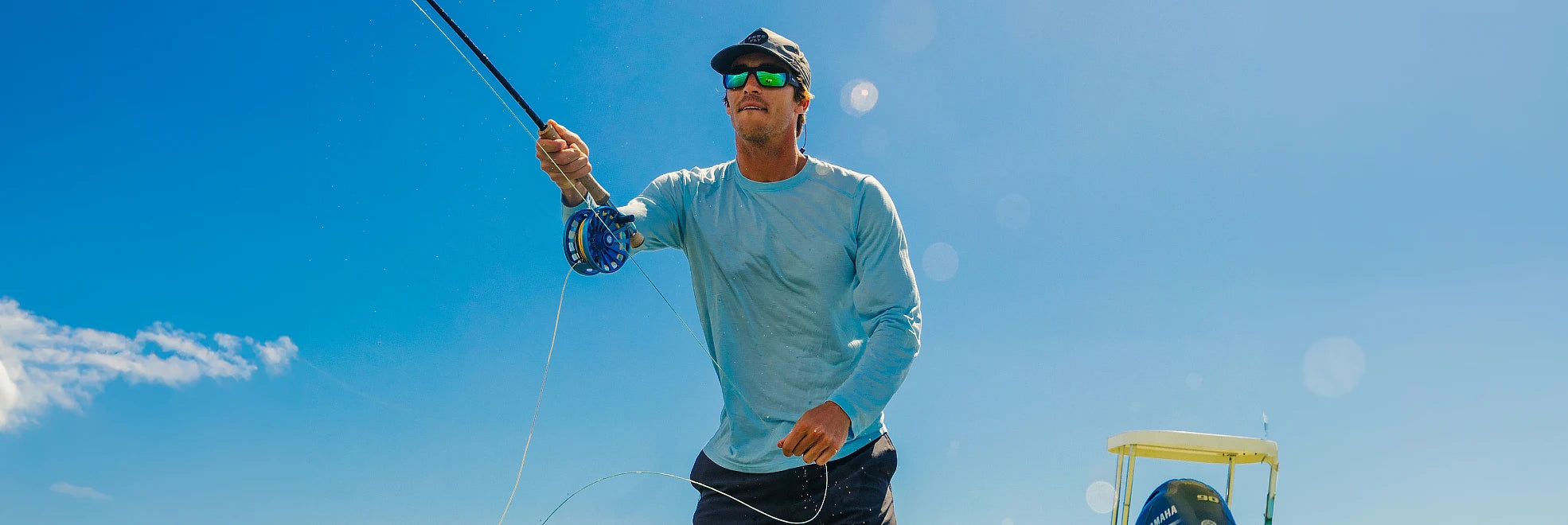













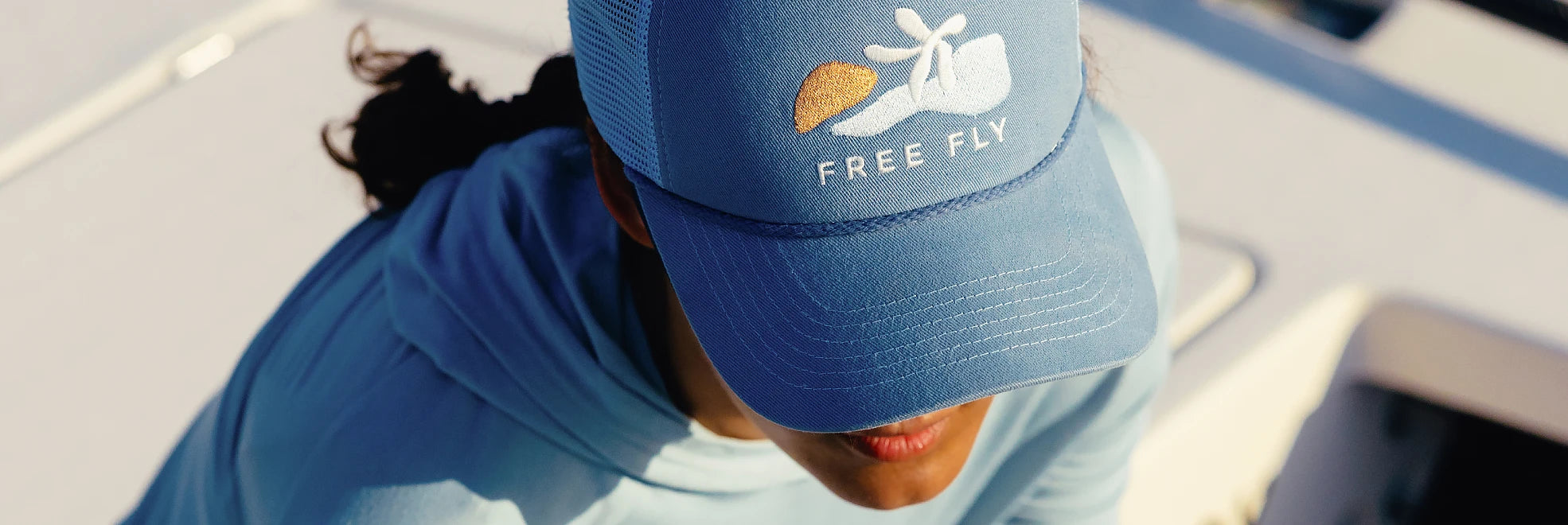








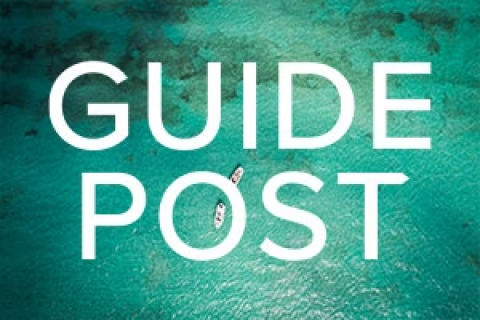



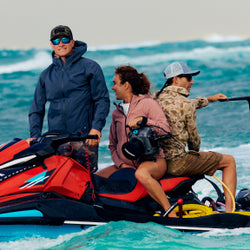
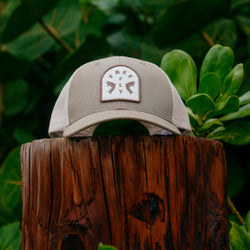
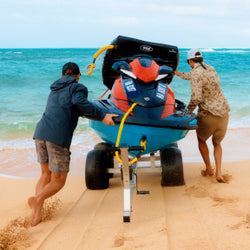






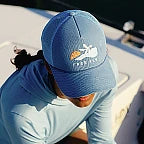


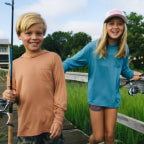
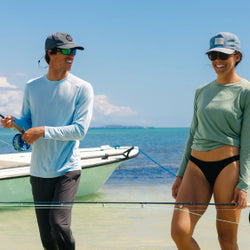
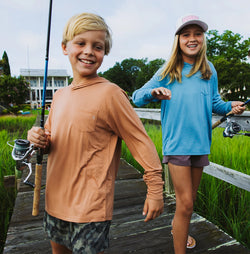







0 Comments